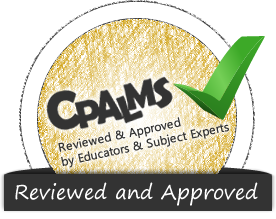Career Connection
Students can practice the durable skill of communication by discussing personal experiences, listening actively, and articulating ideas effectively in pairs and group discussions. They will also practice critical thinking skills by assessing stressors, evaluating different stress management techniques, and justifying their choices which will aid in the development of higher-order thinking. Working in pairs or small groups to research, analyze, and present findings enhances teamwork and practices the durable skill of collaboration. Understanding stress and its impact on well-being is essential in any career. This lesson not only teaches stress management but also equips students with transferable real-world skills helping them develop resilience, workplace wellness strategies, and the ability to support others in managing stress effectively.
Procedure
1.) To introduce the lesson the teacher will ask students to rank their daily stress level from 1 to 10, with 1 as very rarely feeling stressed and relaxed most of the time, 5 as feeling mildly stressed sometimes, 10 as feeling extremely stressed most of the time.
2.) Once students have had a chance to think about their ranking, they can hold up their hands representing their stress level. The teacher can then instruct the student to pair up with someone who is on the opposite end of the stress spectrum from them. For example, a one could pair up with anyone from 5 to 10, whereas a 10 would pair up with almost anyone.
3.) Students can be given 4-5 minutes to discuss, “How do you deal with and manage your stress?” and share their thoughts. The teacher can ask students at each end of the spectrum to share their thoughts with the group. (This question can be written on the board.)
4.) Provide students with the case study, “The Weight of Success.” CPALMS Resource # 219605. Allow students time, in pairs or small groups, students will be asked to read and analyze the events and stressors in the case study and discuss based on the following discussion questions:
- What factors are contributing to Lesley’s stress? Are any of them within her control?
- Why might Lesley’s previous stress management techniques no longer be effective?
- What new strategies could she use to better manage her stress and anxiety?
- Should Lesley consider making changes to her work-life balance, or is the pressure simply part of a high-achieving career?
- How can Lesley recognize when stress is becoming unhealthy, and what steps could she take to prevent burnout?
- The students can be provided with the handout “Case Study Discussion Questions” to track and record their thoughts on the case study.
5.) The students can be given the handout, “Stress Management Techniques,” to record their research and then plan specific stress management techniques that the main character can implement. They will discuss how she can incorporate them into her own life and provide a rationale for each. The students can select up to 3 techniques. Students can record their findings on paper or digitally.
6.) Once students have finished their research, the teacher can have the groups present to the whole class or groups can pair up with another group to share their research and rationale.
7.) Students can then participate in a whole group discussion with takeaway thoughts. The teacher can then present the students with an exit ticket for self-reflection. The teacher can provide students with the handout, “Exit Ticket” with the following sentence frames:
- As a result of this activity, I am interested in implementing the following stress management technique(s)_______________ because__________________. This applies to my daily life in that______________________. In my future career, this will be helpful for me because_____________________.
- Students will be asked to write a few sentences describing revelations or take-aways from this activity.
8.) Before the end of the lesson, the teacher can pose the following questions for the students to reflect on and discuss:
- Do you think stress is always negative, or can it be beneficial in certain careers? Why or why not?
- What skills beyond stress management do you think are essential for maintaining a healthy work-life balance in any career?
- How can developing strong stress management skills now give you a competitive advantage in your future career?
![Cpalms [Logo]](/images/cpalms_color.png)





